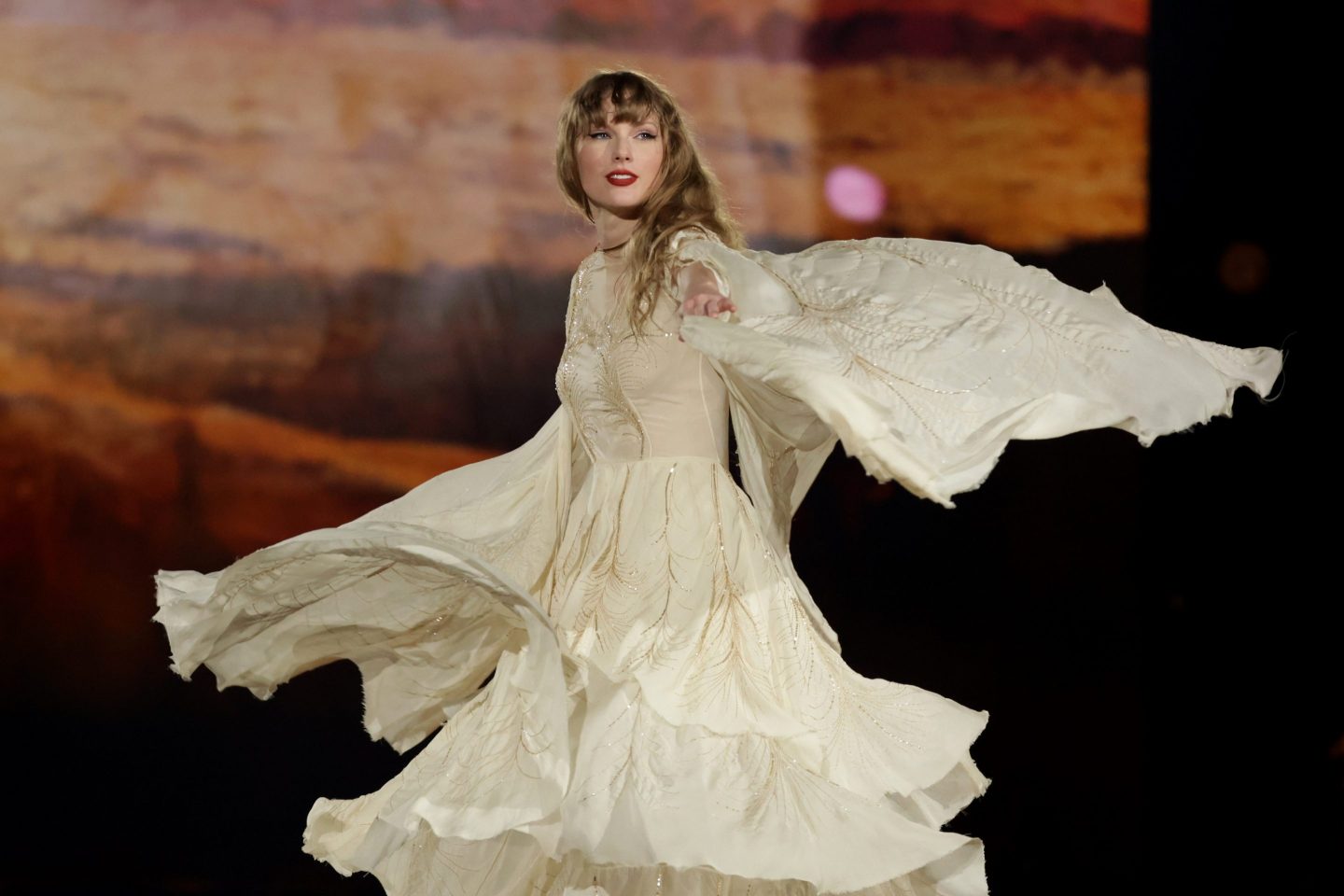“Swiftonomics” could have helped drag Singapore’s economy across the finish line. The Southeast Asian country banked on several high-profile events—most notably concerts by superstar Taylor Swift—to jump-start tourism spending.
On Thursday, Singapore’s government unveiled the country’s GDP growth numbers for the first quarter of the year, giving an initial indication of whether the strategy paid off.
In the first three months of the year, the city-state’s economy grew just 0.1% quarter on quarter, much slower than the 1.2% growth reported for Q4 2023.
Singapore’s economy appears stronger when analyzed on a year-by-year basis, growing by 2.7% in the first quarter of the year, up from 2.2% growth reported in the previous quarter.
Tourism ended up being a bright spot in what was otherwise a sluggish economy. Manufacturing shrank by 1.8% year on year, which the country’s Ministry of Trade and Industry attributed to output declines in biomedicine, electronics, and other general manufacturing. Perhaps surprisingly for a city-state like Singapore, manufacturing delivers about 20% of the country’s GDP.
But strong performances in the service sector offset those declines. Arts, entertainment, and recreation grew by 22.8% year on year, and accommodation expanded by 14.4%. The transportation and storage sector, which includes air transport, expanded by 6.8% year on year.
Did Swiftonomics work?
Singapore launched its event strategy this quarter with six concerts from the British rock band Coldplay in January, followed by six March concerts by Taylor Swift. Singapore was the only Southeast Asian stop on the U.S. singer’s Eras Tour, which irked some of the country’s neighbors: Thai Prime Minister Srettha Thavisin claimed that Singapore paid concert organizers $3 million per show in exchange for exclusivity.
Some 4.36 million visitors arrived in Singapore in the first three months of the year, according to data from the Singapore Tourism Board. The average hotel occupancy rate for that period was 81.49%, compared with 77.8% for the same period in 2023. Half the audience for both the Coldplay and Taylor Swift concerts came from overseas, according to the Monetary Authority of Singapore.
The question is now whether Singapore can maintain that momentum post-Swift. Visitor arrival numbers for April slowed to 1.36 million, a 9% drop from March, according to data from the Singapore Tourism Board.
The Ministry of Trade and Industry projects that a stronger-than-anticipated recovery in demand will drive growth in the aviation and tourism sectors. It also expects manufacturing to improve over the year, with a gradual recovery in semiconductor demand as markets for smartphones, PCs, and AI applications improve.
DBS, the country’s largest bank, said the electronics cluster’s performance “will be key” to Singapore’s manufacturing upturn. Electronics alone account for almost half of overall factory output and over 9% of GDP, according to the bank.
DBS is maintaining its 2024 growth forecast at 2.2% but warned of lingering downside global risks such as heightened geopolitical tensions.











